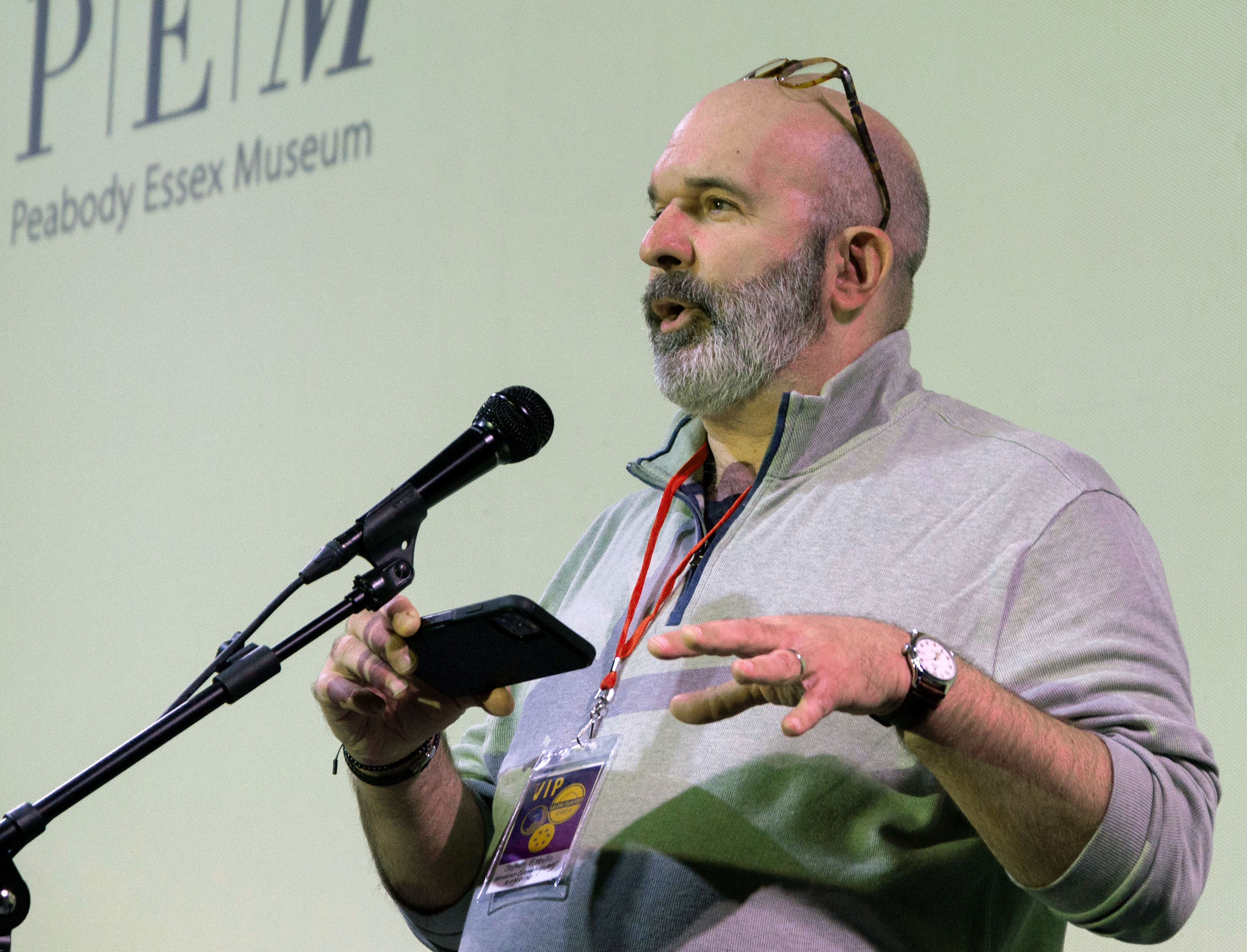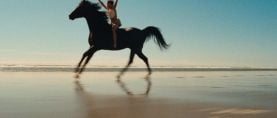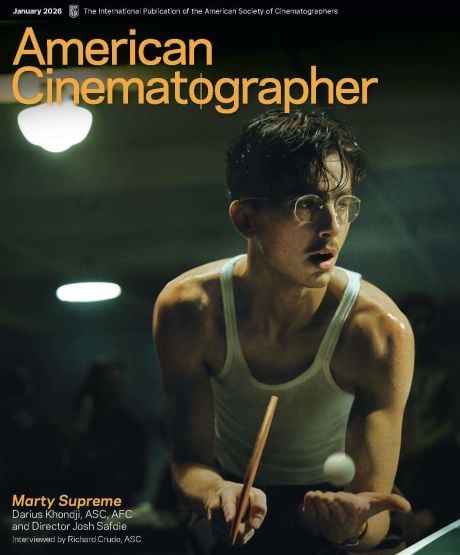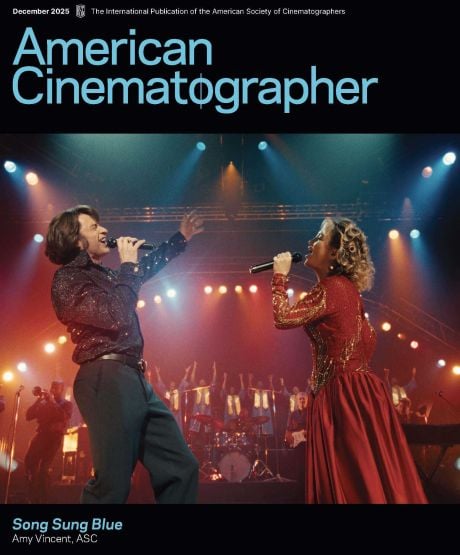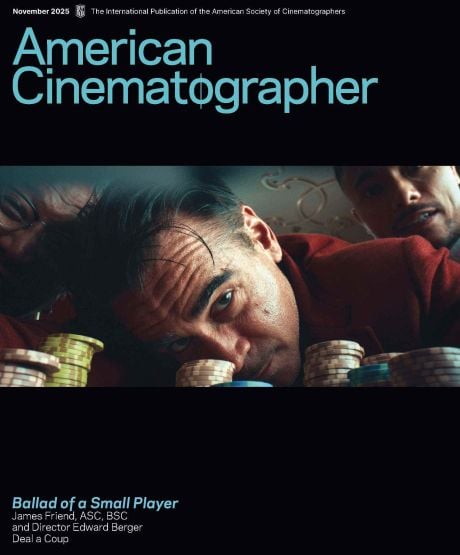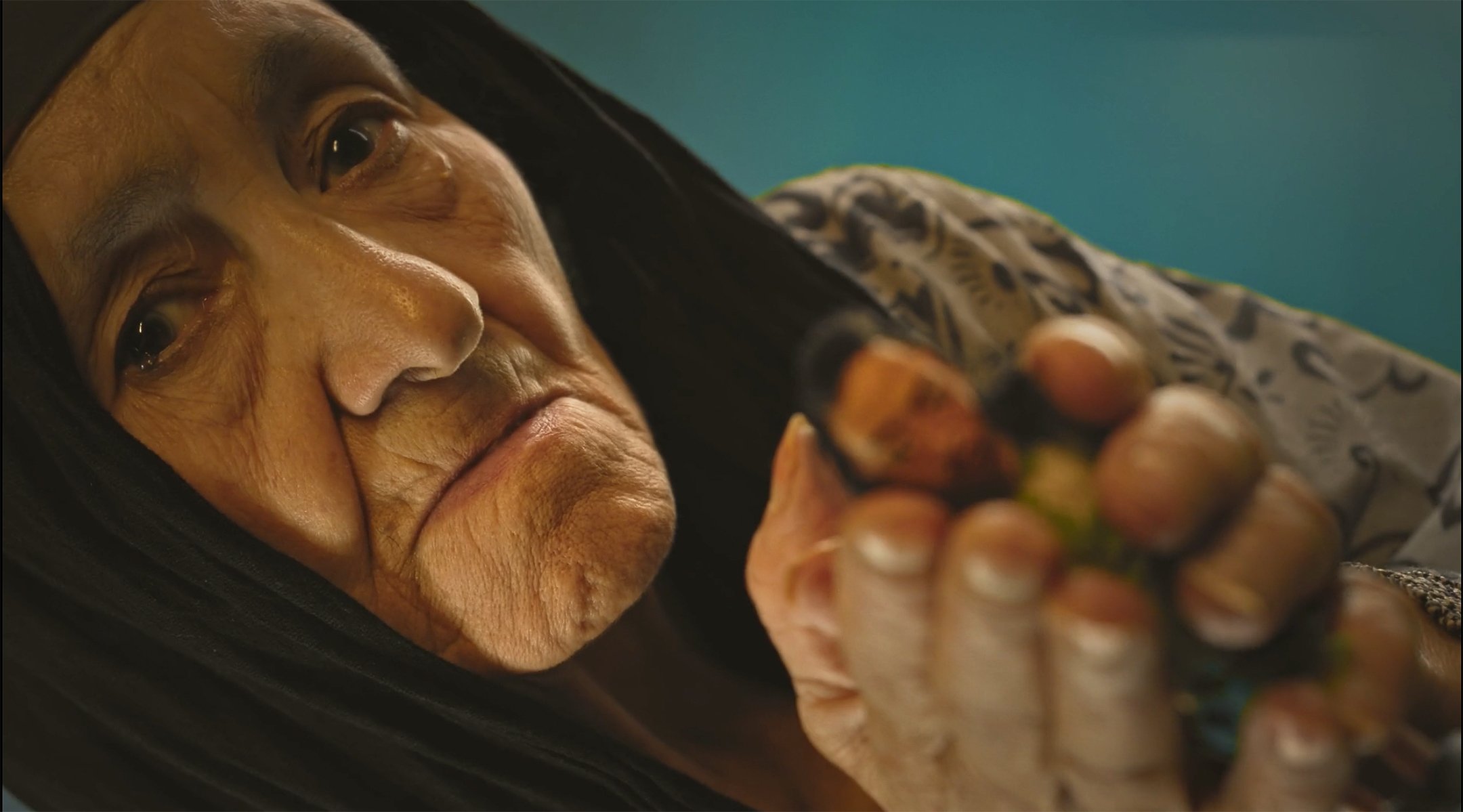
Salem Film Fest 2024 American Cinematographer Award
Winner The Mother of All Lies is one of the most original and visually inventive documentaries of this or any other year.
This year’s Salem Film Fest entries produced a very strong group of nominees that demonstrate why documentaries remain such a vital filmmaking genre.
From its very first image, director Agniia Galdanova’s Queendom grabs the viewer’s attention with the surreal tableau of an older Russian woman, bundled up in the cold of a wintry landscape, as she escorts a tall, spindly figure who’s decked out in fetishistic attire and hobbling through the snow in high-heeled boots. It’s soon revealed that the unlikely pair are intent on doing a photo shoot in the midst of the frozen tundra.
The morbid-looking figure is revealed to be Gennadiy Cheboterev, an unusual, non-binary artist who adopts the stage name “Gena Marvin” while performing in outrageously bizarre, handmade costumes that wouldn’t look out of place in a Marilyn Manson video. Needless to say, in Vladimir Putin’s strictly policed Russia, Gennadiy tends to draw attention — and a fair share of hostility — while performing in public or just walking down the street.
We follow Gennadiy’s hardscrabble existence during a move from Magadon to Moscow, where participation in various protests leads to expulsion from school and, eventually, an arrest. As Russia invades Ukraine, Gennadiy’s situation becomes untenable, forcing a relocation to Paris, where the impoverished artist continues to rely upon support from loving grandparents — which they provide despite the grandfather’s objections to Gennadiy’s lifestyle.
Our protagonist’s life reflects a quest for identity with non-binary parameters and undefined borders — within a society whose borders are unmistakably and oppressively defined. The documentary’s cinematography team, led by Ruslan Fedotov, adopts an observational style, and the result is like following an alien that’s landed on Earth, only to experience the kind of intolerance and misunderstanding one might expect from an uncomprehending populace.
Interspersed with glimpses of Gennadiy’s “real” life are snippets of performance pieces that reflect the protagonist’s inner turmoil amid emotionally trying circumstances — a potent approach that produces indelible, empathetic images of a courageous person fighting to embrace and sustain their true self.
Subterranean follows two intrepid teams of cave explorers — the Bisaro Team and the Argo Team — as they attempt to establish records for mapping the deepest and longest cave systems in the Rocky Mountains and on Vancouver Island, respectively.
The sheer difficulty of recording images during these expeditions is impressive enough, but both teams manage to capture some stunning and artfully photographed sequences in very extreme environments — claustrophobic tunnels, freezing-cold caves, and underwater passages that require the use of scuba equipment and remote-controlled drones.
The adventurous documentarians manage to exploit natural light to poetic effect, but also skillfully utilize the artificial sources they bring into hard-to-reach areas, even when those tools are just humble flashlights and helmet-mounted lamps. Impressively, some of the resulting images call to mind shots from big-budget sci-fi and horror films such as Alien and The Descent — providing the audience with astounding looks at environments they’ll never get to see for themselves.
Out There: A National Parks Story, directed and shot with DIY gumption by Brendan Hall, fulfills the filmmaker’s can-do attitude by sharing with viewers the natural glories of U.S. national parks, including very scenic stops at the Grand Canyon, Yellowstone, Yosemite, the Grand Tetons, Mount Rainier and many more.

Accompanied on the trip by a non-filmmaker friend who joins him to share the experience and offer support, Hall mixes a variety of formats to make viewers feel as if they’ve hopped into the pair’s car for the nearly 10,000-mile drive and hiked alongside them. A narrative thread is provided by a handful of significant individuals — including a park ranger, a member of the Blackfoot Indian tribe, a passionate backpacker, an accomplished large-format parks photographer and even ordinary tourists — who express their sincere appreciation for nature while offering personal perspectives on the importance of these spectacular preserves.
As the epic journey progresses, Hall produces beautiful, jaw-dropping footage to accompany the life-affirming testimonials of his subjects. The documentary’s climax is a symphonic montage of images that could encourage a tenderfoot or even the most insulated city dweller to sally forth and experience the wonders of the national-park system.
All of the aforementioned projects deserve recognition and praise, but this year’s winner of the American Cinematographer Award is The Mother of All Lies, one of the most original and visually inventive documentaries of this or any other year.

The narrative — which unfolds gradually, like layers of onion skin — delves into the history of Moroccan filmmaker Asmae El Moudir’s family, inexorably revealing the details of a horrendous tragedy that changed the course of their life in Casablanca. Hamstrung by a lack of both family photos and images of the day that continues to haunt them all, El Moudir uses creative means to work past this limitation; she manages to re-create the past with the help of her modelmaker father, who builds highly detailed miniature figurines and “sets” to stand in for the family, their friends, the neighborhood where they all lived, and the government soldiers whose atrocities linger on like a vivid, recurring nightmare.
In presenting scenes from the past, El Moudir and her cinematographer, Hatem Nechi, treat the miniatures like full-size sets populated by actual actors, deftly lighting and staging sequences in ways clever ways that ingeniously manage to simulate live action. Real footage involving the family in the present day is shot with just as much planning and forethought, imbuing their interactions with an abundance of subtly conveyed subtext. Along the way, the filmmakers use everything at hand to light their subjects — ranging from table lamps and sparklers to a handheld, flashing red police light, all of which lend some of the revelations a dreamlike ambience.
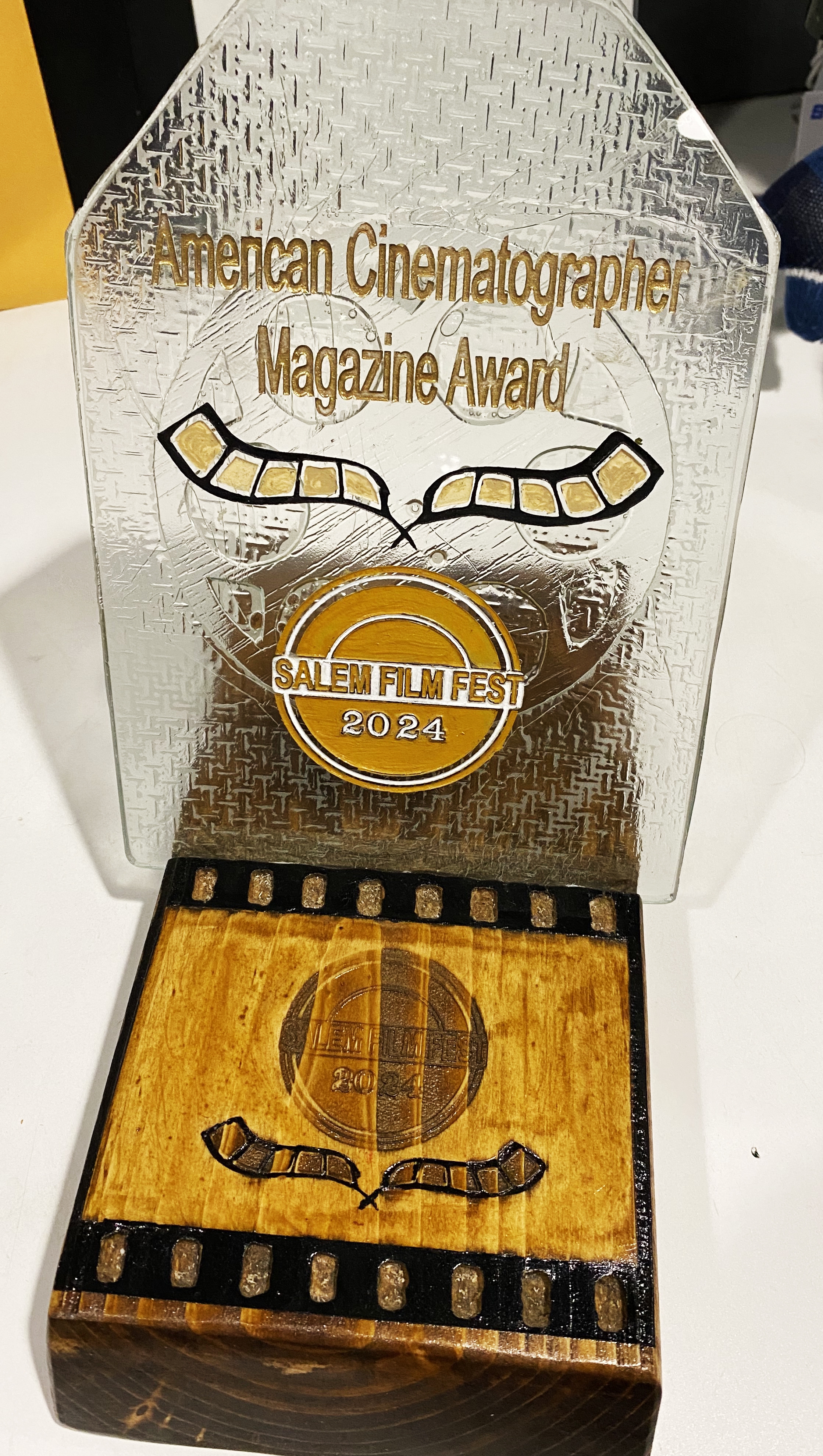
The family’s strict and cantankerous matriarch — the director’s grandmother — might be the only person who could (and does) take objection with the artistry on display by her gifted relatives. Ironically, the severe old woman views filmmaking as a contemptible profession that brings shame upon the family, preferring to call El Moudir a “journalist” instead. She also forbids any photography in their communal home, but to find out why, you’ll have to watch the documentary. It’s a masterpiece of “miniature filmmaking” that magnifies the family’s tragic, traumatic history.
You’ll find more details on the Salem Film Fest here.
